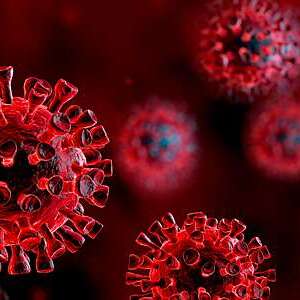In India, an outbreak of “black fungus” was recorded in patients with COVID

Indian doctors are reporting an increase in cases of a rare infection called mucormycosis, also called the "black fungus", reports the BBC. The disease affects patients recovering from covid-19 or those who have already been ill. Patients with diabetes who contracted the coronavirus were at the greatest risk.
Mucormycosis is a rare infection. it is caused by fungi of the Mucorales family, which are commonly found in soil, plants, manure, and rotting fruits and vegetables. The fungus infects the sinuses, brain, and lungs and can be life threatening in diabetic or immunocompromised people such as cancer patients or people with HIV.
Doctors believe that mucormycosis, which has a 50% mortality rate, may be caused by therapies used to treat COVID-19.
Drugs suppress the immune system to avoid a cytokine storm when the immune system begins to kill its own cells. It is believed that deliberate suppression of the immune system can provoke cases of mucormycosis.
India sets new record for daily coronavirus deaths Society
Read together with it:
- An HSE expert reported on the "evolution of inequality" in access to healthcare.An HSE researcher analyzed Russians' access to healthcare over a ten-year period. In 2021, the influence of financial factors became noticeable for the first time: low income reduces the likelihood of visiting a DOCTOR.Over the ten years from 2011 to 2021, the number of Russians requiring medical care but not receiving it remained virtually unchanged, according to a study by Lyudmila Zasimova, hea...
- He crawled to the icon with prayer. The true story of a man who overcame drug addiction.Alexander Ovchinnikov. Topic News. Our project's hero was a drug addict for many years. The thought that this was a dead end never left him, but his addiction proved stronger. One day, when he could no longer walk, he crawled to an icon in prayer. This became his first step toward a new life. Today, he heads a charity center that helps those who have given up hope and are unable to quit ALCOHOL an...
- Kyiv imposed sanctions against Dmitriev and Russia's negotiator in Istanbul.The sanctions also affected Kirill Dmitriev, the first deputy minister of education and HEAD of the Ministry of Agriculture of RUSSIA and the former head of the Constitutional COURT of Ukraine.Ukrainian President Volodymyr Zelenskyy has imposed new sanctions against Russian officials. He announced this on his TELEGRAM channel. According to a document posted on the website of the Ukrainian Presiden...
- Scientists have identified a human virus comparable to COVID-19.The human respiratory syncytial virus (RSV) may be comparable in severity to influenza and CORONAVIRUS. This is the conclusion reached by Singaporean researchers collaborating as part of the PREPARE program, according to the press service of the Singapore General Hospital. Scientists conducted three studies to assess the severity of the disease, the risk of cardiac complications, and its long-term...
- «Новые воротнички»: почему компании начали ценить кандидатов без дипломаНа рынок труда хлынула волна новых воротничков — высококлассных специалистов без высшего образования. Как пересмотреть подходы к найму, чтобы не упустить самых перспективных из них, рассказывает Алексей Клочков, основатель HR-tech компании Happy Job Раньше большинство компаний при найме сотрудников уделяло повышенное внимание диплому. Однако теперь, поступая таким образом, они лишь создают себе пр...
- Орбан добился разрешения Трампа закупать российскую нефтьСША сделали «бессрочное» исключение на поставки российских энергоносителей в Венгрию через «Турецкий поток» и «Дружбу», объявил Орбан после встречи с Трампом. Будапешт и Вашингтон также заключили ряд сделок США сделают для Венгрии исключение из санкций, заявил венгерский премьер-министр Виктор Орбан после встречи с американским президентом Дональдом Трампом. «В Венгрии по-прежнему будут самые низк...




























































